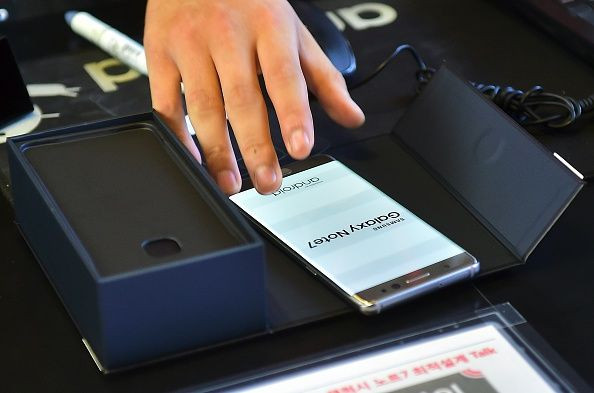Samsung Battery Update: Devices Tested In Company Lab Rather Than Third-Party Facility

There’s something different with how Samsung tests its batteries: unlike other smartphone manufacturers, the South Korean company runs tests in an in-house lab, reports the Wall Street Journal.
Samsung’s lab is one of the 28 labs certified by the CTIA, a U.S. wireless industry’s trade group, but the company is the only one to be using a lab they own. Apple and Motorola, for example, use third-party labs for CTIA certification.
In August, Samsung rolled out its flagship device: the Galaxy Note 7. Less than a month after its release, the device made headlines for catching on fire. The company issued a voluntary recall—also known as their global exchange program—on Sept. 2 for 2.5 million devices across 10 countries. The self-imposed recall was followed by an official one by the U.S. Consumer Product Safety Commission, shortly before replacement phones hit the market. Samsung discontinued the product last week after replacement phones were found to also catch on fire.
At the time of the recall, Samsung cited "minor manufacturing flaw" in its battery production as the preliminary reason for some devices catching on fire. But The New York Times reported that, despite having hundreds of employees investigating the problem, Samsung has no idea why batteries are exploding. The company has stated it would be “premature to speculate” the cause and told Reuters they are going over all their steps for “engineering, manufacturing and quality control processes.”
In a recent statement, Samsung said it would be “making significant changes in its quality assurance processes.” Whether or not that includes using a third-party lab has not been revealed by the tech company.
While using an in-house lab may seem like a conflict of interest, experts in the field make the case that it prevents exclusive information from leaking out. It also allows companies to expedite the process of getting devices onto the market since they don’t have to wait for for an outside company to complete the task.
CTIA-approved labs are ones who have qualified employees, meet all the standards, and are not influenced by manufacturers. “We’ve certified over 1,500 batteries,” said Tom Sawanobori, the chief technology officer at the CTIA, to the Journal. “This is the first time we’ve had an issue.”
© Copyright IBTimes 2025. All rights reserved.





















